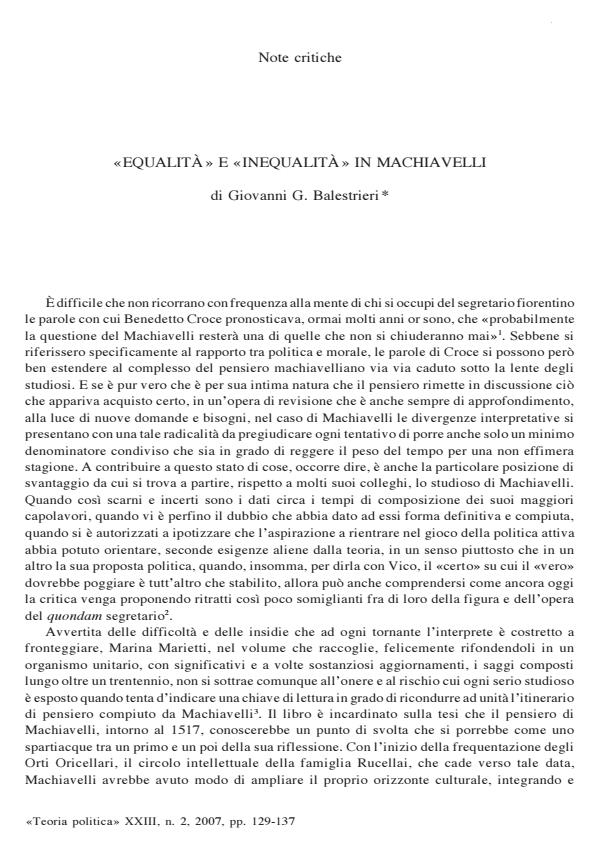"Equalità" e "inequalità" in Machiavelli
Titolo Rivista TEORIA POLITICA
Autori/Curatori Giovanni G. Balestrieri
Anno di pubblicazione 2007 Fascicolo 2007/2
Lingua Italiano Numero pagine 9 P. 129-137 Dimensione file 90 KB
DOI
Il DOI è il codice a barre della proprietà intellettuale: per saperne di più
clicca qui
Qui sotto puoi vedere in anteprima la prima pagina di questo articolo.
Se questo articolo ti interessa, lo puoi acquistare (e scaricare in formato pdf) seguendo le facili indicazioni per acquistare il download credit. Acquista Download Credits per scaricare questo Articolo in formato PDF

FrancoAngeli è membro della Publishers International Linking Association, Inc (PILA), associazione indipendente e non profit per facilitare (attraverso i servizi tecnologici implementati da CrossRef.org) l’accesso degli studiosi ai contenuti digitali nelle pubblicazioni professionali e scientifiche.
Around 1517, with the frequentation of the Orti Oricellari, the political meditation of Machiavelli would have had a decisive turning-point, for which the Florentine secretary would be convinced some necessity to proportion the political institutions to the social structure. Set himself for this way, he would be therefore induced to point out, for society « equali », the republic and, for society « inequali », the monarchy, the only form of government that, with the regal authority, would have been able to contain the « inequality » that distinguishes still a feudal system with its nobility. It is this the interpretative key with which M. Marietti (Machiavelli, l’eccezione fiorentina, Cadmo, Fiesole 2006) thinks about reducing to an unity the thought of Machiavelli. But in to lower it in the Machiavellian texts, Marietti doesn’t succeed entirely persuasive. Particularly it doesn’t convince her reading of the principato civile and the thesis, that, in last, Machiavelli would have identified the principate with the tyranny tout court.
Giovanni G. Balestrieri, "Equalità" e "inequalità" in Machiavelli in "TEORIA POLITICA" 2/2007, pp 129-137, DOI: